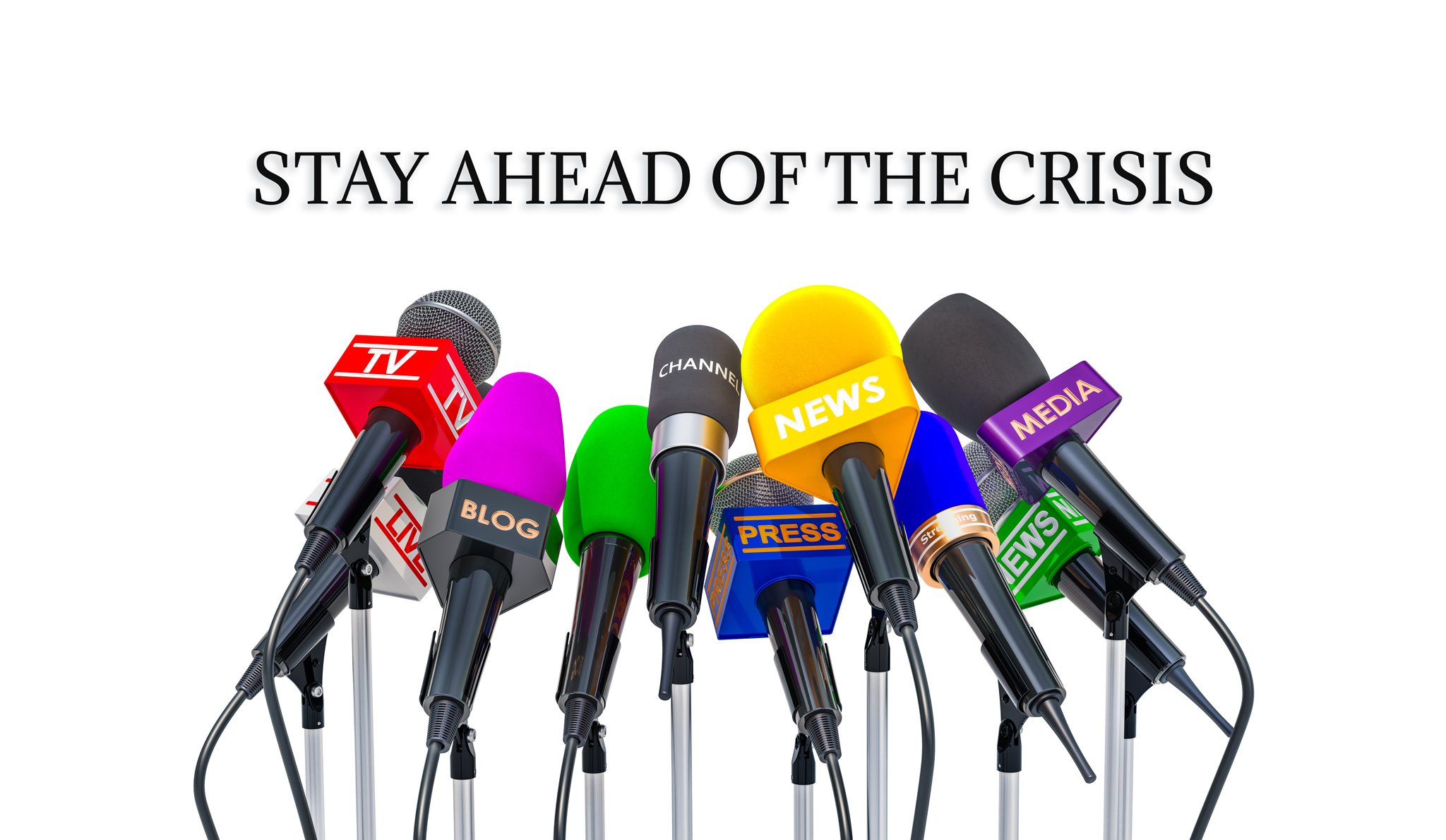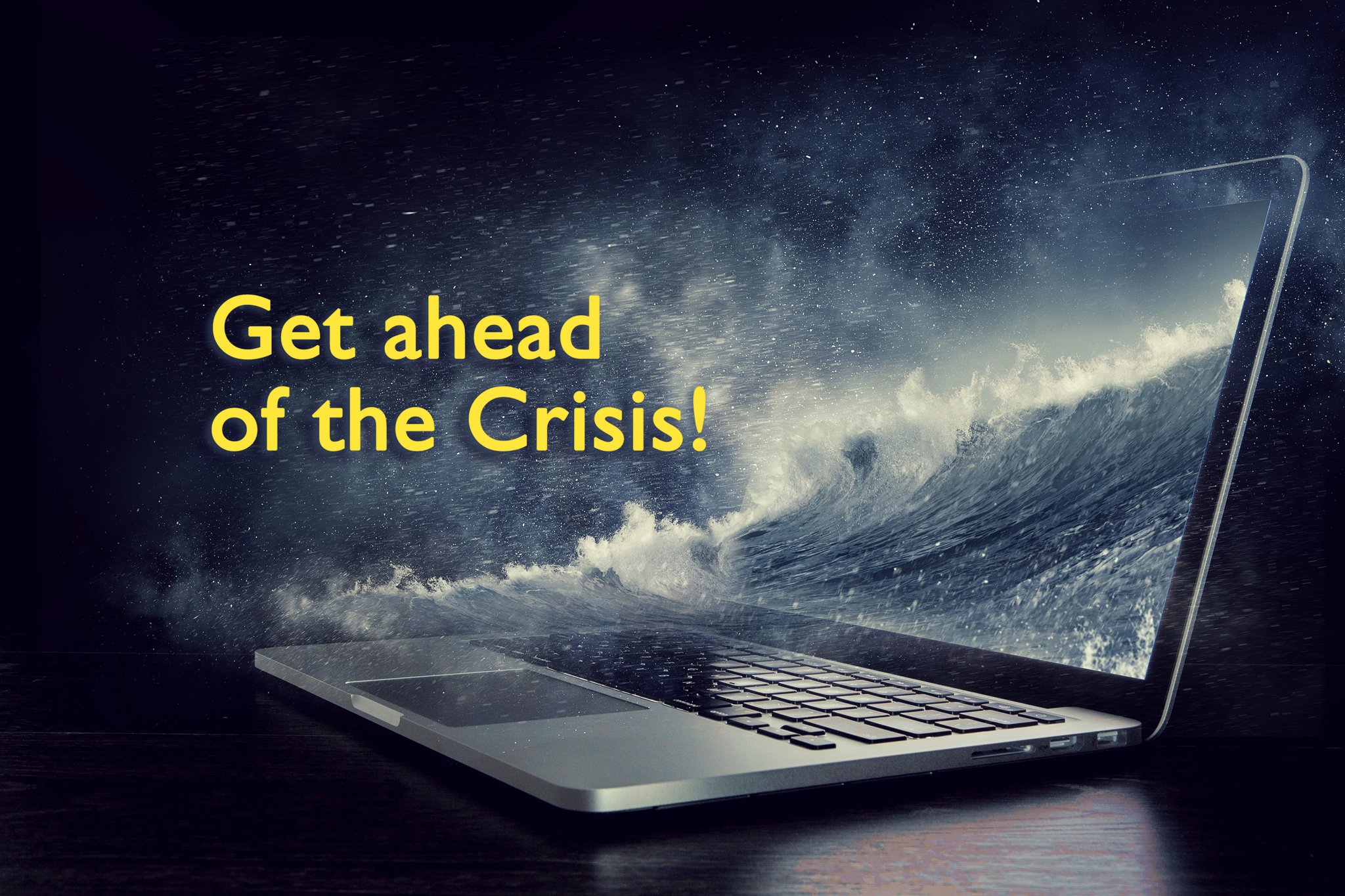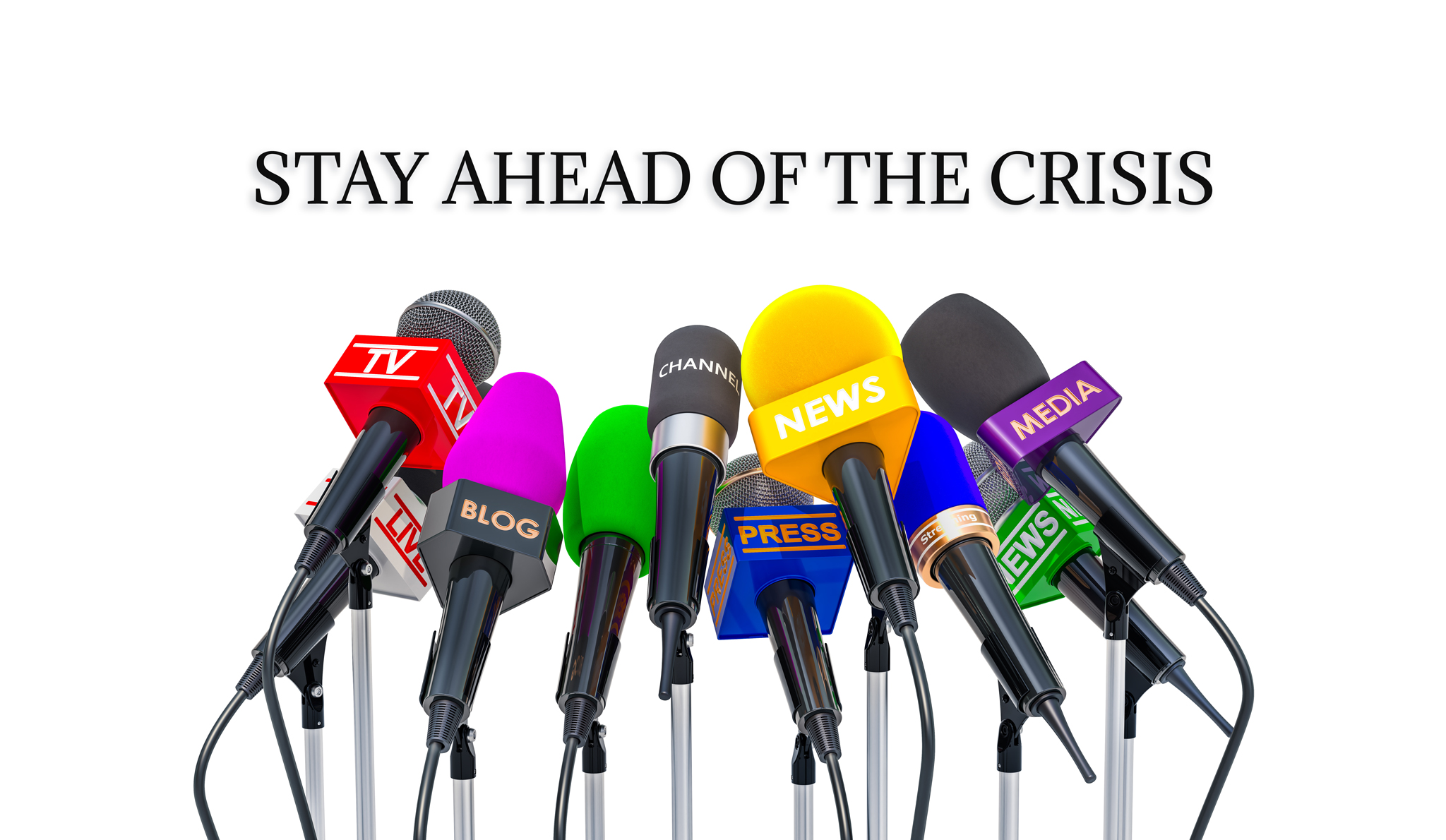
I have been asked several times over the past few months about crisis communication. Thank goodness in these instances there was not a real issue but the anticipation of a crisis that prompted the questions.
Unfortunately, most people do not think about how to respond to a crisis until it’s too late. Everything is going along in your normal day and then suddenly out of nowhere a crisis happens. One that is so large and potentially controversial that you have no idea how to respond. You receive a call from the media and you politely decline the call and then scramble to try and react. This is not a great situation to be in!

With just a little planning you can ensure that your organization continues to work toward fulfilling its mission even during a time of a crisis. If you are prepared you can act swiftly and strategically to respond to the issue.
If you do not have a policy and process in place regarding who is approved to speak to the media on the agency’s behalf during a crisis you will want to ensure that such a policy is written and implemented immediately. The roles of the people who are approved to speak on behalf of the agency should be outlined in the policy. It is best to limit the number of spokespeople so you may want to consider limiting those to the CEO, the Board Chair, and possibly the senior director of marketing/communications. The policy should be well communicated to your entire staff and board.

If a crisis occurs or if you anticipate a crisis, you should develop a list of talking points with your senior most marketing and communications professional, members of your senior leadership team and possibly your board chair. During your preparation make sure that you try to anticipate all the questions that you may be asked about the situation. You will want to make certain that these talking points contain clearly articulated and factual information. If the agency has responsibility in the situation make certain to provide an explanation, a plan for how you intend to move forward, and offer an apology if warranted. When in doubt always err on the side of transparency in your talking points.

If representatives of the media contact you to speak regarding the situation at hand, I would suggest that your receptionist be trained to place all the calls directly into voicemail or to take a message. The media is notorious for catching interviewees off guard with controversial questions; so, you will want to make sure that the messages shared with the media do not extend past what has been thought through thoroughly and documented in your talking points. We live at a time of sound bites so be cognizant and anticipate how your statements or talking points can stand alone.
It is imperative that you be responsive and proactive when dealing with a crisis but not reactive. While you have a strong allegiance to your agency and its mission and your initial reaction is to protect it, you will want to make sure that you do not overreact or appear confrontational. Doing so makes it seem as though you are defensive and will usually elicit mistrust where media sources are concerned.
Anticipating, planning and preparing for possible crisis situations will help to ensure that you respond in a thoughtful, intentional, and proactive way.
"When you can't control what is happening, challenge yourself to control the way you respond to what's happening. That's where your power is!" - Unknown
Tina Gentry, Chief Advancement and Access Officer


Upcoming Events

An organizational model that allows not-for-profit hospices (Members) to leverage best practices, achieve economies of scale and collaborate in ways that better prepare each agency to participate in emerging alternative payment models and advance their charitable missions.









